
Rocket science
BOCA CHICA, TEXAS, USA
NOVEMBER
SpaceX, the spacecraft manufacturer founded by Elon Musk, conducted two tests of its reusable Starship system in 2023. Standing 121m (397ft) tall, it's twice the height of NASA's Space Shuttle and incorporates the world's most powerful rocket to date. The system has two stages: a passenger-carrying section on top (the second stage) and a rocket below (the first stage), powered by 33 methane and liquid oxygen-fuelled engines. Its maiden test flight (uncrewed) in April not only saw the system explode three minutes after launch, but the thrust from its engines also caused significant damage to the launchpad (see inset).
Its subsequent uncrewed test flight in November saw the second stage reach space successfully. Although it's believed to have self-destructed shortly afterwards, however.
In greater detail
NORTH CAROLINA, USA
APRIL
50 years ago, the Nobel Prize-winning chemist Paul Lauterbur described a new imaging technique in the journal Nature: magnetic resonance imaging (MRI). The technique remains at the forefront of modern medical diagnosis, but for the last four decades, researchers at Duke University in the US have been striving to improve it. This year, they showcased their results with this super-high resolution image of a mouse brain, made possible by a combination of stronger magnets and more powerful computers. Each voxel in the image (the equivalent of a pixel in 3D) is 64 million times smaller than in a standard MRI.
Parachuting in
MIZORAM, INDIA
JUNE
This story is from the New Year 2024 edition of BBC Science Focus.
Start your 7-day Magzter GOLD free trial to access thousands of curated premium stories, and 9,000+ magazines and newspapers.
Already a subscriber ? Sign In
This story is from the New Year 2024 edition of BBC Science Focus.
Start your 7-day Magzter GOLD free trial to access thousands of curated premium stories, and 9,000+ magazines and newspapers.
Already a subscriber? Sign In
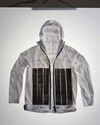
NOW YOU SEE ME, NOW YOU DON'T
Scientists around the world are working on ways to hide us from sight. But how close are we to developing tech that could make us invisible?

UNCORKED POTENTIAL
How much good can ditching drink for a month really do? Answer: a whole lot. In fact, science shows even short-term abstinence could unlock a cocktail of lasting benefits

Scientists discover when humans and dogs became friends
The relationship spans thousands of years, but experts might have pinpointed the first connection
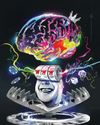
Why it's so hard to kick a gambling addiction
We now know that gambling can be as addictive as drugs, but there are factors that can make it even harder to quit
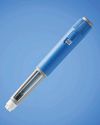
How much could Ozempic change our world?
The weight-loss drug has made headlines and broken sales records, but what does it mean for our future?
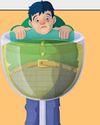
WHY DOES DRINKING ALCOHOL MAKE IT SO MUCH HARDER TO LOSE WEIGHT?
While enjoying the occasional glass of wine or pint of beer may seem harmless, regular or excessive alcohol consumption can significantly hinder your weight-loss journey for a few reasons:

Why do so many New Year's resolutions fail?
Establishing positive new habits is hard at any time of year. But there are ways to stop your attempts ending in failure
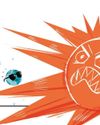
'Extreme' solar radiation storm could hit Earth
Sun-like stars may have tantrums far more frequently than we thought

HOW CAN I BANISH THE JANUARY BLUES?
Dark mornings, long chilly evenings and short days; many people find January tough.

Neutrinos are getting in the way of dark matter detection
These troublesome particles are difficult to detect, but they're starting to show up in places where they're not wanted